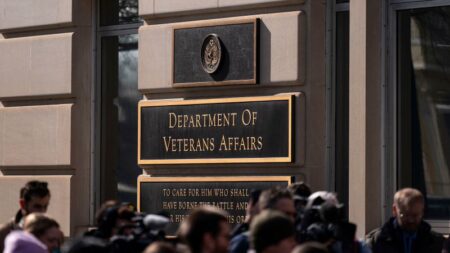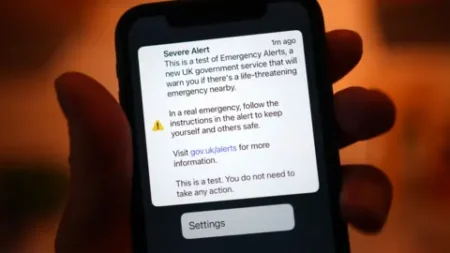On a Wednesday marked by national discourse regarding fiscal policy, Russell Vought, the Director of the Office of Management and Budget, defended the Trump administration’s agenda aimed at enacting extensive cuts to federal funding. This criticism, however, did not go unchallenged, with several Republican senators expressing apprehension and probing into the specifics of these cuts. Their inquiries highlighted a divide within the party as they debated the potential impact of the proposed financial reductions.
In his opening statements to the Senate Appropriations Committee, Vought articulated that the proposed cuts—referred to on Capitol Hill as “rescissions”—had been meticulously designed. This package was created with input from Congress and sought to retract approximately $9.4 billion in previously approved government spending. Vought asserted that these cuts primarily targeted funding that the American populace finds objectionable, aiming to streamline expenditures in line with the administration’s agenda.
As the hearing progressed, various Republican senators raised significant questions regarding the programs earmarked for budget cuts. They expressed particular concern over the approach the Trump administration intended to take when implementing these cuts. The White House had initially submitted its spending cuts request to Congress earlier that month, a move described as part of a broader attempt to reform federal allocations.
A major point of contention during the hearing centered on the proposed reductions to PEPFAR—the President’s Emergency Plan for AIDS Relief. This initiative, which originated two decades ago during George W. Bush’s presidency, has played a crucial role in combating HIV and AIDS, successfully saving millions of lives globally. Senators voiced their apprehension that slashing such vital funding would endanger lives and undermine decades of progress in public health.
Senator Susan Collins, who chaired the committee, underscored the bipartisan nature of PEPFAR. She warned that cutting funds aimed at preventing disease could be “extraordinarily ill-advised and short-sighted.” This sentiment echoed among several committee members who questioned the rationale behind the proposals.
In defense of the budgetary cuts, Vought asserted that the measures would not jeopardize life-saving programs. He maintained that it was essential for the American public to recognize that several foreign aid initiatives may have benevolent-sounding titles but could conflate with significant malpractices not aligned with U.S. interests.
Further concerns were raised about the impact of budget cuts on public broadcasting, especially essential rural stations that provide critical emergency communications and specialized local content. Senators Collins and Mike Rounds from South Dakota sought assurances from Vought to ensure that funding cuts would not adversely affect these indispensable services. The proposed cuts specifically target the Corporation for Public Broadcasting, which plays a modest yet significant role in funding for public broadcasting entities like NPR and PBS.
Senate Majority Leader Mitch McConnell introduced the topic of “soft power,” emphasizing its crucial role in maintaining America’s global presence. He acknowledged the need for reform in how the country invests in peace and stability while asserting that frivolous expenditures masquerading as American aid must be eliminated. Despite agreeing with the need for budgetary reform, McConnell criticized the chaotic manner in which the administration attempted these cuts. He warned that this disorganization could potentially allow adversaries, such as China, to fill the void left by diminished U.S. influence in critical regions.
In concluding remarks, McConnell highlighted that responsible investments in soft power not only avert conflict but also preserve American influence and save countless lives. His statements encapsulated the complex interplay of fiscal policy, international relations, and public health wherein the administration’s budgetary decisions could reverberate across various sectors of society. As discussions surrounding these proposed cuts continue, the implications for domestic and international policies remain a hotbed of debate among lawmakers and citizens alike. The intricacies of government funding and its consequences are increasingly significant, affecting programs that many Americans depend on as they grapple with the potential outcomes of the proposed budget cuts.











